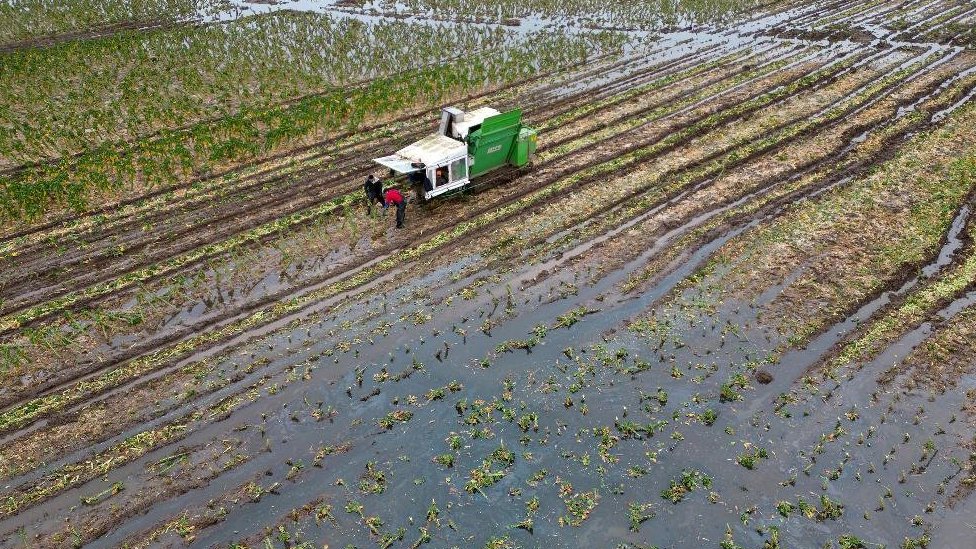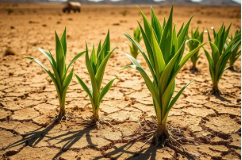
Farmers across the United Kingdom are raising serious concerns over the growing impact of climate change on agriculture. Unpredictable weather patterns, extreme rainfall, prolonged droughts, and rising temperatures are increasingly disrupting crop cycles, livestock health, and overall farm productivity leaving many in the farming community feeling vulnerable and uncertain about the future.
Over the past few years, the U.K. has seen a steady rise in climate-related challenges. In some regions, excessive rainfall has delayed planting and caused waterlogging in key arable zones, while elsewhere, drought-like conditions have dried up fields and forced farmers to rely heavily on irrigation a costly and unsustainable option for many small and medium-sized operations.
Livestock farmers, too, are under pressure. Warmer winters and fluctuating temperatures have led to a surge in pests and diseases, putting additional strain on animal health and farm finances. Grass growth patterns have become irregular, impacting feed availability and grazing schedules. These changes, farmers say, are no longer occasional disruptions but part of a worrying new normal.
The National Farmers’ Union (NFU) has called on the U.K. government to act swiftly. They are urging stronger investment in climate adaptation strategies, including improved water management, crop research, soil restoration, and financial safety nets for farmers affected by extreme weather. Many in the sector believe that without coordinated policy support, British agriculture could face long-term instability.
Adding to the concern is the unpredictability of future seasons. Farmers who once relied on generations of weather knowledge now find themselves facing unfamiliar challenges year after year. Some have begun adopting regenerative practices, like cover cropping and reduced tillage, while others are exploring technology-driven solutions such as precision irrigation and climate-resilient seed varieties.
However, adapting takes time and resources both of which are in short supply for many farm businesses already stretched thin by rising input costs and market volatility.
Despite these challenges, there is a strong sense of determination within the farming community. While climate risks are clearly increasing, so too is awareness. More farmers are engaging in conversations about sustainability, resilience, and long-term planning. But they stress that change cannot be driven by farmers alone.
As one Yorkshire farmer put it, “We’re willing to do our part but we need the government and the public to recognize that food security and farming resilience go hand in hand with climate action.”
For now, the message from the fields of Britain is clear: climate change is no longer a distant threat it’s happening now, and farmers are on the frontlines.














